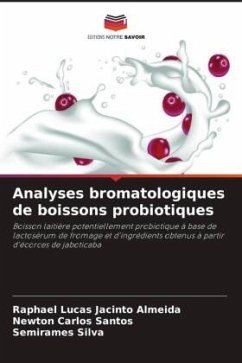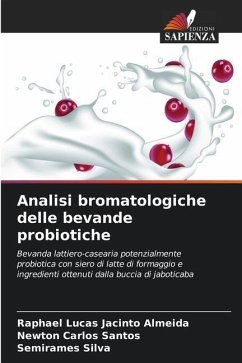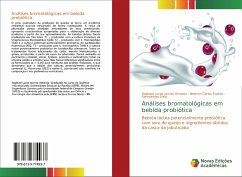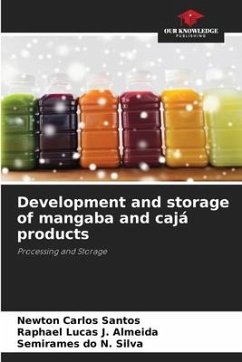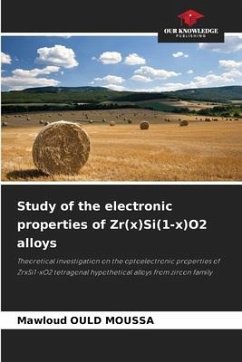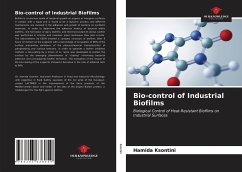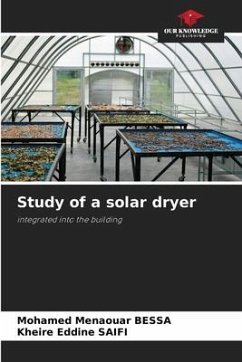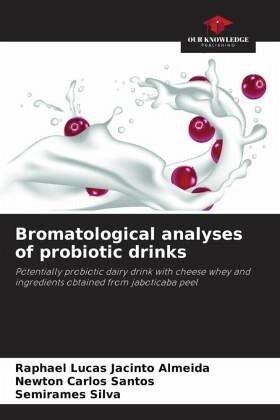
Bromatological analyses of probiotic drinks
Potentially probiotic dairy drink with cheese whey and ingredients obtained from jaboticaba peel
Versandkostenfrei!
Versandfertig in 6-10 Tagen
27,99 €
inkl. MwSt.

PAYBACK Punkte
14 °P sammeln!
Whey, a co-product of cheese production, becomes an environmental problem when disposed of inappropriately. Jabuticaba peel has antioxidant activity among its constituents, and has suitable characteristics for the production of various products based on its utilisation. The milk drinks were produced in three batches: T1 - produced with the starter culture of Streptococcus thermophilus TA40; T2 - produced with S. thermophilus TA40 and the potentially probiotic commercial culture of Lactobacillus rhamnosus LR32; T3 - produced with S. thermophilus TA40 and the potentially probiotic native culture...
Whey, a co-product of cheese production, becomes an environmental problem when disposed of inappropriately. Jabuticaba peel has antioxidant activity among its constituents, and has suitable characteristics for the production of various products based on its utilisation. The milk drinks were produced in three batches: T1 - produced with the starter culture of Streptococcus thermophilus TA40; T2 - produced with S. thermophilus TA40 and the potentially probiotic commercial culture of Lactobacillus rhamnosus LR32; T3 - produced with S. thermophilus TA40 and the potentially probiotic native culture of Lactobacillus plantarum. All the treatments included syrup, hydroalcoholic extract and jelly produced from jaboticaba peel. The parameters moisture, ash, lipids, protein and total carbohydrates in the wet and dry samples were assessed. There were no significant differences between the formulations (p > 0.05) for any of the analyses carried out, which shows that the addition of the potentially probiotic commercial (L. rhamnosus LR32) and native (L. plantarum) cultures did not interfere with the composition and nutritional parameters.



